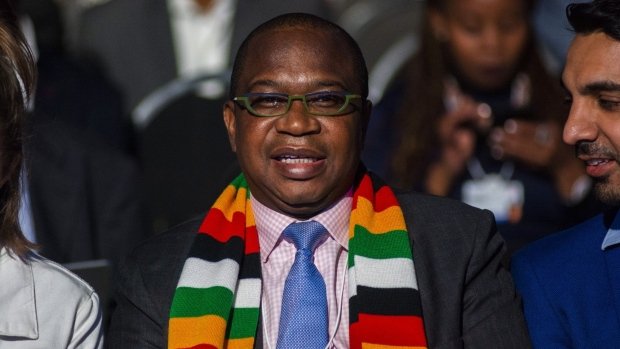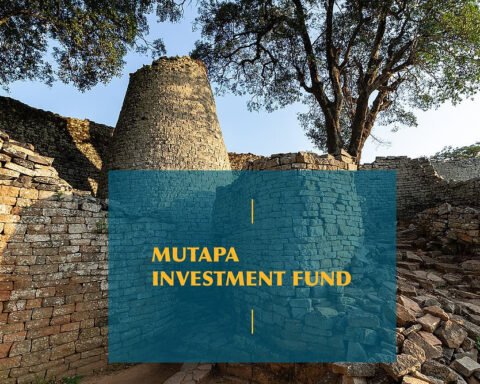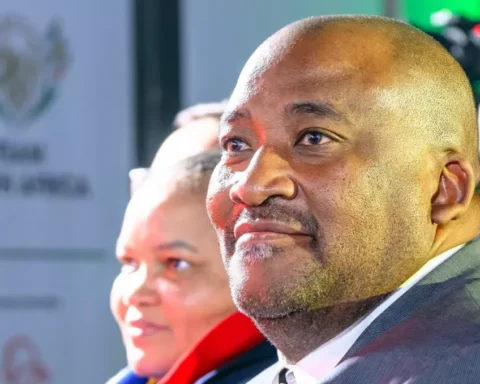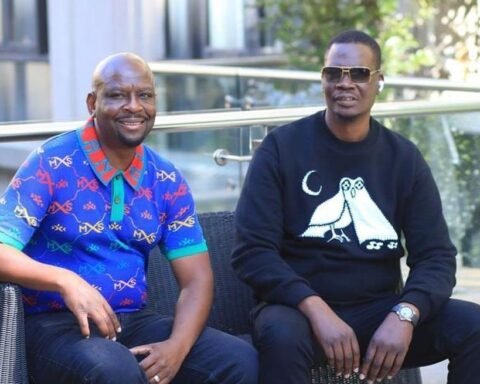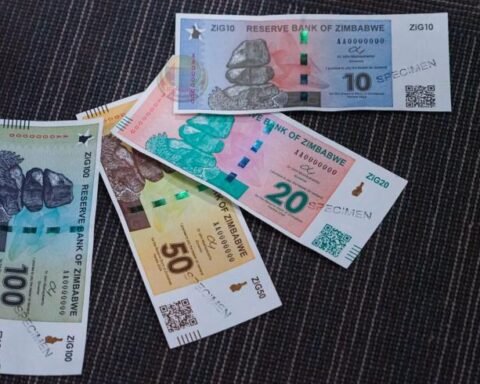Zimbabwean Finance Minister Mthuli Ncube has been endorsed by the ruling party to stand as a lawmaker in the upcoming elections, a possible precursor to his reappointment in the next administration. This move highlights Ncube’s growing influence in Zimbabwe’s political arena.
Ncube was appointed by President Emmerson Mnangagwa in 2018 to help revive the country’s economy, which had fallen into disarray during Robert Mugabe’s 37-year rule. He was appointed under a law that allows the president to appoint up to five people from outside parliament to the cabinet. This gave Ncube the opportunity to stay aloof from Zimbabwe’s fractious political arena.
However, things changed in October last year when Ncube was elected to the ruling Zimbabwe African National Union-Patriotic Front central committee. This is the party’s highest decision-making body, and two months later, Mnangagwa appointed him as the party’s deputy finance secretary. This has given Ncube more clout within the party and the country.
Over the weekend, Zanu-PF held primaries to select its lawmaker candidates, and Ncube was nominated unopposed to represent Cowdray Park, the largest constituency in the city of Bulawayo. This underscores his increased influence within the party and the country.
Zanu-PF has ruled Zimbabwe since independence in 1980, retaining power through several elections that Western nations said were marred by rigging and human-rights abuses. The next election is likely to take place in July or August, and most analysts consider the prospect of a free and fair vote or power changing hands to be slim.
Nelson Chamisa, who heads the opposition Citizens Coalition for Change, is expected to face off against Mnangagwa, who received the ruling party’s backing for a second term in October. However, there are currently no clear replacements for Ncube within Zanu-PF’s ranks, as few of its senior officials have global financial or economic expertise.
Ncube, who previously served as a vice president and chief economist at the African Development Bank, has had a mixed legacy as finance chief. He oversaw the reintroduction of the Zimbabwean dollar after a 10-year hiatus, but the local currency has not gained traction, and the US dollar continues to be used for most transactions. Runaway inflation, which surfaced during the Mugabe era and led to the local currency’s initial scrapping, staged a comeback under Ncube’s watch, peaking at 837% in July 2019. The adoption of a new gauge that reflects the increasing use of US dollars in the economy saw the inflation rate fall back to double digits this month.
Ncube has been credited with running budget surpluses, enabling Zimbabwe to spend more than $100 million to secure coronavirus vaccines mainly from China and placing it at the forefront of Africa’s response to the pandemic. He has also led the nation’s efforts to clear $17 billion owed to multilateral lenders, a prerequisite for it to be able to access new credit lines.
Despite his efforts, Ncube has had to operate within a highly irregular environment that renders his orthodox economic methodology ineffectual, according to Stephen Chan, a professor of world politics at the School of Oriental and African Studies in London.
Neither Ncube nor Zimbabwe’s presidency has responded to requests seeking comment on his endorsement as a lawmaker.
